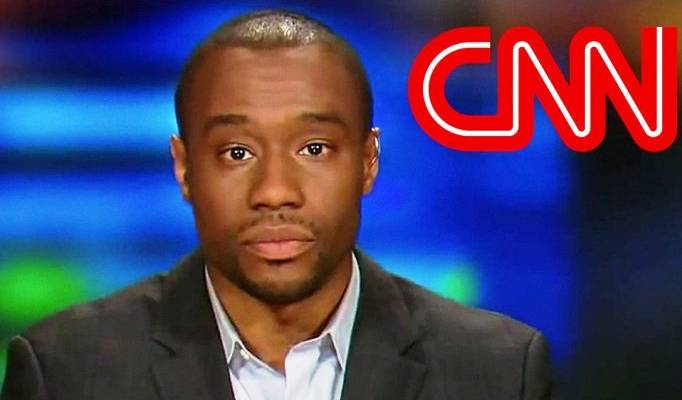Temple University is reviewing whether Marc Lamont Hill can be reprimanded after Israel remarks, board chair says.
By: The Algemeiner Staff
Temple University is determining whether it can reprimand Marc Lamont Hill, a faculty member whose contract as a CNN commentator ended after he made comments denounced as anti-Semitic.
Hill, a tenured professor of media studies and production, came under fire from Jewish groups after speaking at the United Nations last Wednesday, where he endorsed the boycott, divestment, and sanctions (BDS) campaign against Israel in pursuit of “a free Palestine from the river to the sea” — a call typically used by Arab nationalist and Islamist groups to advocate for the establishment of a Palestinian state from the Jordan River to the Mediterranean Sea, in place of Israel. The BDS campaign itself is often criticized for rejecting the Jewish people’s right to self-determination and denying Jewish indigenity to the Levant.
In his speech, Hill also did not rule out violence as a means of Palestinian “resistance,” suggesting that as “black resistance to American apartheid did not come purely through Gandi and nonviolence … we must allow the Palestinian people the same range of opportunity and political possibility.”
His comments were quickly condemned by local and national Jewish groups including the Anti-Defamation League, Simon Wiesenthal Center, Zionist Organization of America, National Council of Young Israel and Jewish Federation of Greater Philadelphia, with the latter rebuking Hill’s remarks as “anti-Israel and anti-Semitic.”
‘Lamentable’ and ‘Disgusting’ Comments
Temple University President Richard Englert weighed in on the controversy on Friday, saying in a statement that Hill’s “views are his own” and did not represent his school, though they were constitutionally protected.
The chairman of Temple University’s Board of Trustees, Patrick O’Connor, was more forceful in his reaction, telling The Philadelphia Inquirer on Friday that Hill’s remarks were “lamentable” and “disgusting.”
“It should be made clear that no one at Temple is happy with his comments,” O’Connor said. “Free speech is one thing. Hate speech is entirely different.”
“I’m not happy. The board’s not happy. The administration’s not happy. People wanted to fire him right away,” O’Connor continued. “We’re going to look at what remedies we have.”
O’Connor said that he asked the university’s legal department to review whether any action can be taken in response to Hill’s remarks. Temple Faculty Senate President Cornelius Pratt confirmed that O’Connor made the request in an email to student-run Temple News.
Another Temple trustee and major donor, Leonard Barrack, also expressed his disapproval on Friday, saying Hill called “called for the destruction of the State of Israel in code words.”
“I am very upset about it. I think it was anti-Semitic,” Barrack said.
Hill rejected criticism that his comments were anti-Semitic or called for the destruction of Israel, saying in an open letter sent to the Temple University community on Saturday that “this was not my intention at all.”
“My vision of justice for Palestinians absolutely does not come at the expense of justice for Jews anywhere in the world.” he wrote. “To anyone who felt that my comments suggested otherwise, I apologize.”
A letter condemning CNN for firing Hill and signed by chapters of Students for Justice in Palestine (SJP) drew some 470 signatures from students worldwide since it was published on Friday, including more than two dozen from those at Temple University. Two Temple professors were also among the letter’s nearly 190 faculty signatories.
“By firing Hill for his statement of support for the Palestinian people, CNN is trivializing the very real and violent anti-Semitism that plagues our current social structures,” the letter’s authors asserted. “We cannot pretend that painting Hill as a threat that Temple University must remove is fueled by anything other than racism.”
‘Anti-Semitic in Nature’
Jasper Saah, a Palestinian undergraduate at Temple who signed the letter, said he thought Hill’s statement at the UN “was simply calling for equal democratic rights in a secular, democratic state for everyone who lives within historic Palestine.”
“I think that people who see that as an attack on all Jews are purposefully distorting the facts,” Saah — who is a secretary of the school’s SJP chapter — told Temple News.
Yet Abby Sullivan, a Jewish freshman at the school, said the “river to the sea” slogan Hill shared was anti-Semitic in nature.
“It frustrates me because I see this school as a very open and safe place for Jews, and when you hear things like that, that professors are openly saying anti-Israel things, it makes you as a Jew feel really uncomfortable,” she said. “It shakes your confidence on how you look at an organization.”
This is not the first time Hill has raised concern among members of the Jewish community. In October, the professor explicitly refused to “renounce” Nation of Islam leader Louis Farrakhan, who months earlier railed against the “Satanic Jews who have infected the whole world with poison and deceit.”
Hill — who has in the past called Farrakhan “a hero to Blacks of all religions” — wrote at the time that while he has “several principled disagreements” with Farrakhan, “I do NOT believe … that Minister Farrakhan is an anti-Semite.”










